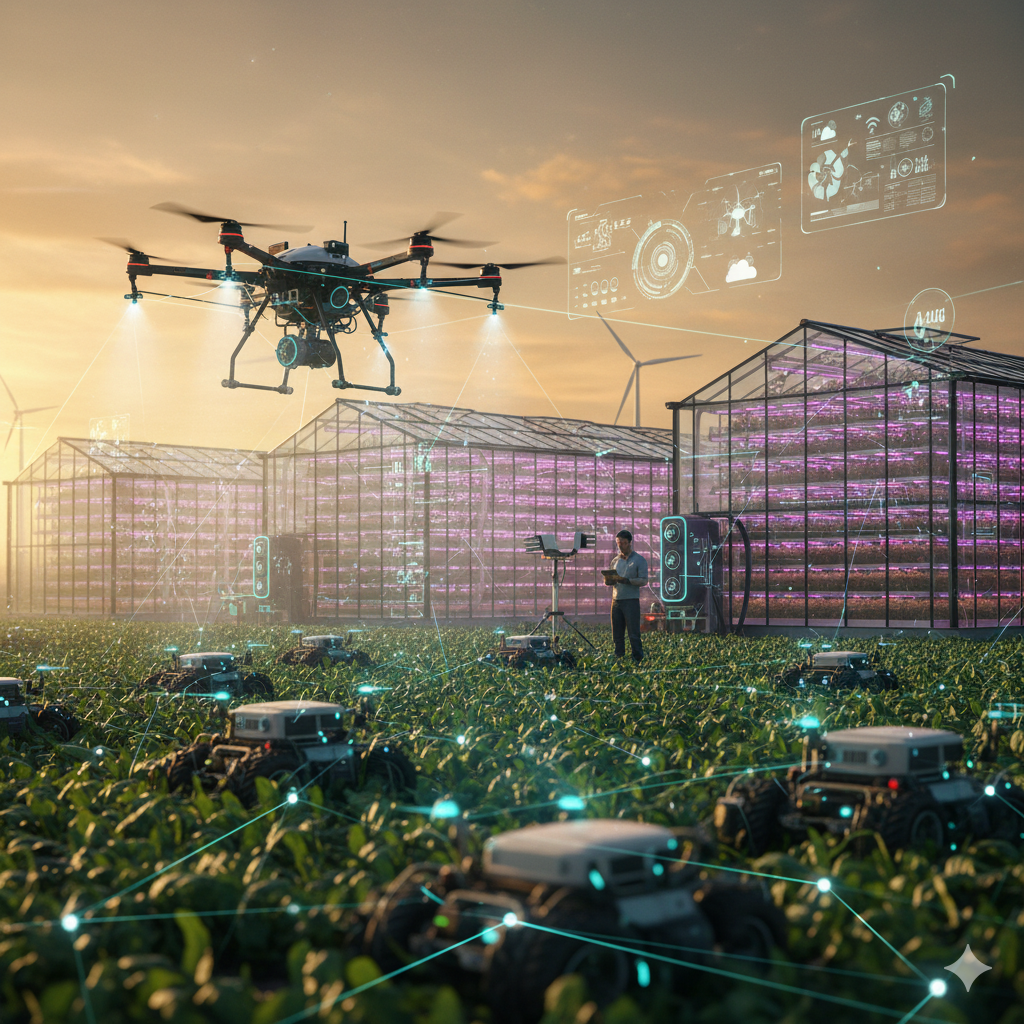AgriTech, short for Agricultural Technology, is the use of modern technology in agriculture to improve crop production, efficiency, and sustainability. It combines tools like AI, IoT, drones, and data analytics to make farming smarter and more profitable.
In 2025, AgriTech is becoming essential as farmers face challenges like climate change, water scarcity, labor shortages, and rising food demand.
How AgriTech Works: Key Tools for Farmers
1. Precision Farming
Precision farming uses sensors, GPS, and drones to monitor crops and soil conditions.
- Sensors detect soil moisture, nutrient levels, and crop health.
- Drones provide aerial imaging to spot issues like pests or diseases.
How it works: Data collected from fields is analyzed to guide fertilizer use, irrigation, and planting schedules, increasing crop yield while reducing waste.
2. Smart Irrigation Systems
Smart irrigation helps farmers use water efficiently.
- Automated systems deliver water based on soil moisture and weather forecasts.
- Reduces water wastage and ensures crops get the right amount of water.
How it works: IoT devices collect real-time data, triggering irrigation only when necessary, saving time and resources.
3. AI and Data Analytics
Artificial Intelligence predicts crop growth patterns, market prices, and pest outbreaks.
- AI models recommend the best planting times and crop varieties.
- Farmers can optimize resource use and plan sales effectively.
How it works: Algorithms analyze historical data, climate patterns, and market trends to provide actionable insights.
4. Drones and Robotics
Drones and robots are changing fieldwork by performing tasks faster and more accurately:
- Drones monitor large areas quickly.
- Robots can plant seeds, harvest crops, and spray fertilizers.
How it works: Automated machines follow GPS-guided paths and detect plant needs, reducing labor costs and human error.
5. Sustainable Farming Practices
AgriTech promotes eco-friendly farming:
- Precision tools minimize chemical usage.
- Sensors reduce water and energy waste.
- Blockchain tracks crop sourcing for transparency and quality.
How it works: Technology ensures resources are used efficiently while protecting soil and the environment.
Why AgriTech is Essential for Farmers in 2025
- Increased Productivity: Higher yields with less input.
- Cost Efficiency: Saves water, fertilizer, and labor costs.
- Climate Resilience: Helps adapt to unpredictable weather patterns.
- Market Advantage: Data-driven decisions improve profits and reduce losses.
- Sustainability: Eco-friendly practices safeguard future farming.
Conclusion
AgriTech is no longer optional—it’s essential for modern farmers. By adopting technology, farmers in 2025 can increase productivity, reduce costs, and protect the environment. AgriTech ensures farming is smarter, sustainable, and ready for the challenges of tomorrow.
